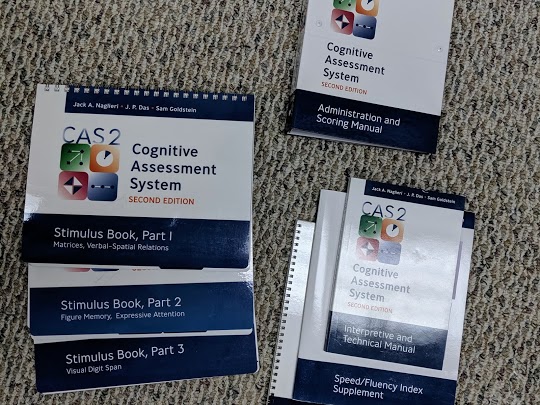The Cognitive Assessment System – Second Edition (CAS2) is a well-researched, norm-referenced measure of cognitive ability based on the cognitive/neuropsychological theory called PASS (Planning, Attention, Simultaneous, and Successive). The CAS2 was designed to measure cognitive processing abilities important for a broad range of differential diagnoses and instructional planning in individuals ages 5-0 through 18-11. CAS2 provides practitioners with a valid and reliable tool to evaluate children’s strengths and weaknesses in important areas of cognitive processing.
Planning – a cognitive process requiring the individual to determine, select, and use a strategy to solve a problem. The subtests require the solving of novel tasks. The three Planning subtests are: Planned Codes, Planned Connections, and Planned Number Matching.
Attention – a cognitive process requiring the individual to selectively attend to a particular stimulus and inhibits attending to competing stimuli. The three Attention subtests are: Expressive Attention, Number Detection, and Receptive Attention.
Simultaneous –a cognitive process involving integrating separate stimuli into a single whole or group. The three Simultaneous subtests are: Matrices, Verbal-Spatial Relations, and Figure Memory.
Successive – a cognitive process requiring the serial ordering of things. The four Successive subtests are: Word Series, Sentence Repetition (ages 5–7) or Sentence Questions (ages 8-18), and Visual Digit Span.

